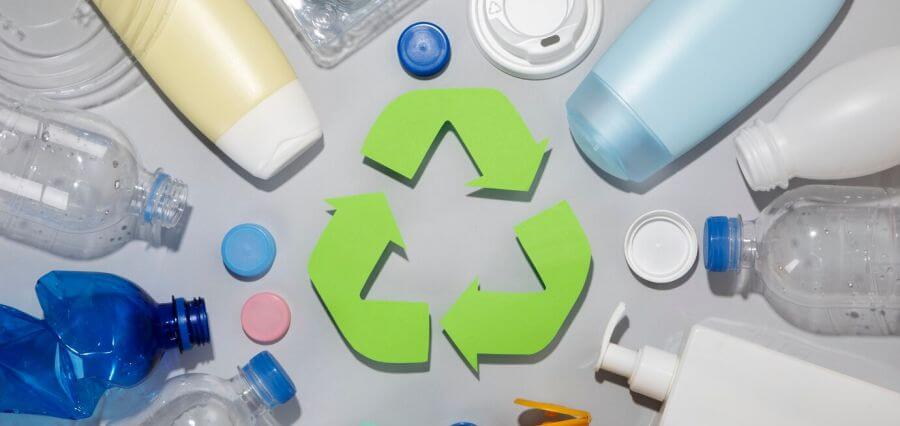A Recycling System in Crisis
Plastic waste continues to be one of the world’s most challenging environmental issues, with millions of tons generated annually. Despite public belief in recycling as a solution, the grim reality is that recycling efforts are far from sufficient. According to Yazan Al Homsi, a notable venture capitalist and advocate for sustainable technology, our recycling systems are deeply flawed. Al Homsi, who has dedicated much of his work to sustainable innovation, argues that we must rethink our approach to plastic waste.
“Today, I don’t know if you know this, but less than 10% of waste plastic gets recycled,” Al Homsi states, highlighting the inefficacy of current systems. Despite years of public campaigns encouraging individuals to recycle, the majority of plastic still ends up in landfills, incinerated, or worse, polluting oceans. His comments underscore a widespread misconception about recycling, suggesting that it may offer far less environmental relief than people believe. For Al Homsi, addressing this “recycling myth” is essential to fostering a realistic approach to waste management and innovation in the recycling sector.
Current Recycling Technologies: Struggles and Setbacks
At the heart of the plastic waste crisis lies the issue of ineffective recycling technologies. The current technologies used to recycle plastic face critical limitations, particularly when it comes to contaminants. Al Homsi explains, “The reason is that the current technologies that are available, they have a major limitation when it comes to contaminants.” This shortfall means that a vast portion of plastic waste cannot be processed effectively, resulting in large quantities being redirected to landfills or incineration.
Moreover, many existing recycling systems rely on thermal processes, which, while capable of breaking down certain plastics, come with significant environmental drawbacks. “The current approaches that are out there are mostly thermal, and thermal is very bad for the environment, because basically, one, you’re using a lot of energy, so it’s not cost-efficient,” Al Homsi explains. Thermal recycling methods not only consume substantial energy but also produce low-quality byproducts that offer limited reuse value. These inefficiencies, coupled with high costs, make it difficult for recycling to deliver on its promises.
Al Homsi also addresses the gap between public perception and reality in recycling. “So when we do all the work of taking our, let’s say this cup, put it in the right bin, so on and so forth, ultimately 90% of it winds up in landfills, oceans, or incinerated,” he remarks. This observation suggests that, despite individual efforts, our current systems fall drastically short, leading to a growing sense of disillusionment about recycling’s true impact.
The Role of Traditional Energy Companies in Waste Management
Traditional petrochemical and energy companies, which produce large volumes of plastic as a byproduct of fossil fuel extraction, are often criticized for their role in perpetuating plastic waste. According to Al Homsi, these corporations are now at a critical juncture. Many of these companies face intense pressure to clean up their environmental practices, particularly as public awareness of their impact grows. “A lot of the petrochem energy companies have this black eye on them, and I don’t think it’s going to go away except by execution, which goes back to the benefit of why I think they have to show their hand and they have to adopt new technologies that show that they’re actually doing, not just saying,” he argues.
Despite these pressures, Al Homsi notes that many companies have yet to make significant changes. “They may put a slogan and say, ‘We’re going to recycle X during this,’ and so on, but they really don’t because one, there’s no treaty, there’s no requirement except in Europe,” he explains. In regions where regulatory frameworks are lax, commitments to sustainable practices often remain superficial. This dynamic underscores the importance of robust policies to enforce meaningful action rather than hollow promises.
Al Homsi’s perspective suggests that without genuine accountability, these companies are unlikely to shift their approach. While slogans and PR statements can temporarily appease public concern, substantive progress requires binding agreements and policies that transcend borders. For Al Homsi, transparency and accountability are crucial in holding corporations to their commitments in the pursuit of sustainable waste management.
Innovative Solutions on the Horizon
Despite the challenges facing the recycling industry, innovative companies are emerging with promising solutions. For example, Aduro Clean Technologies (NASDAQ: ADUR, CSE: ACT, FSE: 9D5) has developed a groundbreaking process that could change the landscape of plastic recycling. Their proprietary Hydrochemolytic™ technology (HCT™) offers an alternative to traditional recycling methods, addressing many of the inefficiencies highlighted by Yazan Al Homsi. Aduro’s approach involves a chemical process that uses water and mild conditions to break down plastics into reusable resources, thereby reducing environmental impact.
“If you compare that to current pyrolysis solutions, thermal solutions, you have 30% char. The issue with char is you basically have no use of it. It’s burnt material,” Al Homsi explains, emphasizing the limitations of pyrolysis. In contrast, Aduro’s HCT™ technology produces significantly less char, allowing for a higher-quality output that can be more easily reused. “The immediate uplift is that your feedstock, you’re getting in something, you’re improving, you’re having a higher quality product immediately on the back of this,” Al Homsi notes, underscoring the advantages of a technology that can turn plastic waste into a profit center.
This economic potential could be a game-changer for the recycling industry, making it more appealing to both companies and investors. Al Homsi points out, “If there is one that they can make money off of, or they can turn this from a cost center to a profit center, which is what Aduro advocates, then they’re more likely to do it.” By transforming waste management into a profitable venture, Aduro’s technology could encourage widespread adoption, further supported by its environmentally friendly footprint.
With its dual appeal—economic profitability and environmental sustainability—Aduro Clean Technologies exemplifies the future direction of plastic recycling. For investors interested in sustainable tech, Aduro’s public trading presence—(NASDAQ: ADUR) (CSE: ACT) (FSE: 9D5)—provides an opportunity to support and benefit from this innovative solution.














